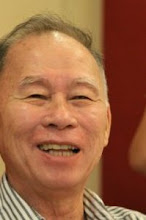by Horacio de la Costa S.J.
Paper written in 1954, typewritten original in AdM Archives; published by 2B3C Foundation in the volume entitled “Selected Essays and the Filipino and His Problems Today”
The basis for a discussion of this subject may be provided by endeavoring to define the two terms involved and the nature of the relationship between them.
By the Church is meant, I would suppose, the Roman Catholic Church; if so, our discussion will prescind from other forms of organized religion and even of organized Christianity.
What is the Church? We should first define it non-commitally; in terms which would be acceptable even to the unbeliever. In this sense, the Church is an association which has for its purpose to satisfy the religious needs of its members, or what those members consider to be their religious needs.
To the believer, that is, to the Catholic, the Church is, in addition, a society founded by Christ the Son of God, and by Him endowed with all the means necessary to attain its end, which is the supernatural salvation and perfection of the members in this life and in the next.
What is democracy? All will accept, I think, the sufficiently distinctive yet non-commital definition that it is that form of political organization in which the authority resides in an inherent and permanent manner in the people, that is, the generality of citizens. “Inherentally and permanently”; that is to say, the citizens of a democracy; while designating certain periodically elected representatives to conduct in their behalf and with their authority the actual operations of government, do not thereby divest themselves of that authority, but retain at all times the power to recall such representatives, replace them with others, and supervise and control their actuations in office.
What is the relationship that subsists or should subsist between a democracy and the Roman Catholic Church? By virtue of the basic principles of both societies, this relationship is or should be one of mutual respect and cordial cooperation.
Mutual Respect: The Church recognizes in civil society an independent authority in the temporal order which belongs to it by nature and is derived from God, the author of nature. Democratic society, for its part, recognizes the inalienable right of its members to freedom of worship, and hence of membership to religious organizations which do not constitute a danger to the common good.
Cordial cooperation: It is difficult if not actually impossible for men to fulfill their religious obligations if there is neither peace nor justice in society, hence the Church cannot but cooperate with the civil authorities in bringing about these conditions. On the other hand, a sense of moral obligation, which is ultimately rooted in religious beliefs, is one of the most powerful incentives men can have towards keeping the peace and doing what is just, hence civil authorities if they are wise, will give the Church every opportunity to inculcate in the body of citizens this sense of moral obligation.
How are conflicts between these two authorities, the civil and the ecclesiastical, resolved in a democracy? In the first place, it must be noted, that these conflicts are not inevitable. There is nothing in the nature of the Church or in that of a democratic state which should make them inevitable. If they do occur, the Church will appeal to the civil courts empowered to settle such disputes; but above all, she will appeal to that trubunal upon which she has a direct spiritual claim and which, in a democracy, is also the ultimate repository of political power, namely, the conscience of the citizen.
Thus the relationship between Church and State in a democratic context is solidly and firmly based on the essential dualism of the human being. The human being is both an individual and a peron. As an individual he is part of a civil society and subordinate to it: to its laws, which are binding on all citizens, to its end, which is the common good. As a person he has a destiny of his own which is irreducible to that of civil society, and in this sense he is not subordinate to civil society but transcends it. Civil society must respect that destiny and the inalienable rights which it founds.
The Church recognizes the claim of civil society on the individual, and, indeed, inculcates on the individual his duty to cooperate for the sake of the common good. But the Church also recognizes that the individual is at the same time a person, a rational being with a destiny of his own apart from and above the exigencies of the temporal order. She demands for herself the freedom to propose the nature of this destiny in the human person, and for the human person himself the freedom to pursue it. Hence, if the Church claims an irreducible level of freedom for herself, it is only that the essential freedom of he human person might be preserved inviolate. She is obliged to do this even against the state, and in the face of whatever measures of coercion may be applied against her. That is why Gospel has always been and will always be the ultimate and indestructible charter of human liberty.



